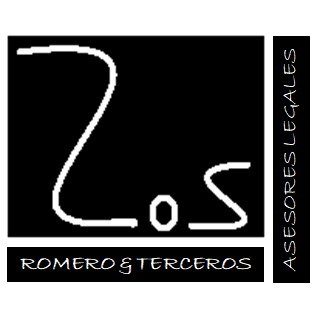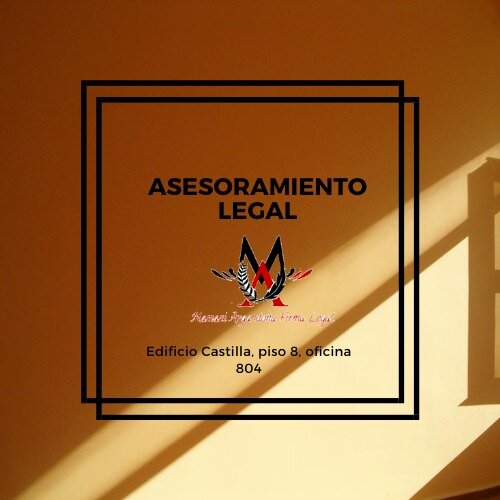Best Transportation Lawyers in Bolivia
Share your needs with us, get contacted by law firms.
Free. Takes 2 min.
Or refine your search by selecting a city:
List of the best lawyers in Bolivia
About Transportation Law in Bolivia
Transportation law in Bolivia encompasses a range of regulations and legal frameworks that govern the movement of people and goods within the country. Bolivia's diverse geography, which includes the high Andes, Amazon Basin, and extensive road networks, presents unique transportation challenges and requires specific legal considerations. Transportation law covers various modes, including land, air, and water, and addresses issues such as infrastructure management, vehicle regulations, passenger rights, and safety standards. The Ministry of Public Works, Services, and Housing is the primary government body responsible for overseeing and implementing transportation policies in Bolivia.
Why You May Need a Lawyer
Engaging a lawyer specialized in transportation law may be necessary for several reasons. Businesses that rely on the transportation of goods might need legal assistance with contracts, logistics disputes, or compliance with national regulations. Individuals might seek legal advice after road accidents, facing penalties for traffic violations, or needing help with insurance claims. Foreign companies seeking to operate in Bolivia can benefit from legal guidance on local laws and regulations to ensure compliance with Bolivian transportation standards. Additionally, legal help may be required when addressing public transportation concerns, environmental impacts of transportation projects, or infrastructure development issues.
Local Laws Overview
Transportation laws in Bolivia are shaped by a blend of national regulations and regional policies. Key aspects include:
- Licensing: Requirements for acquiring driving permits and professional licenses for transportation operators.
- Traffic Regulations: Laws covering road safety, vehicle maintenance standards, and penalties for traffic violations.
- Environmental Considerations: Regulations ensuring that transportation projects comply with environmental safeguards to protect Bolivia’s natural resources.
- Public Transportation: Governance of public transit systems, including fare regulations, service quality standards, and passenger rights.
- Logistics and Freight: Compliance frameworks for cargo handling, customs processes, and cross-border transportation of goods.
Frequently Asked Questions
What are the requirements for obtaining a driver's license in Bolivia?
Applicants must pass a written exam, a practical driving test, and meet medical criteria, including vision and physical health standards.
How are traffic violations penalized in Bolivia?
Penalties range from fines and points deducted from a driving license to more severe consequences such as suspension of the driving license for serious offenses.
What should I do if I'm involved in a road accident?
Report the incident to local authorities and your insurer immediately. It is important to document the scene and collect information from all parties involved. Legal advice may be beneficial to navigate claims or disputes.
Are there specific laws governing the transportation of goods across Bolivian borders?
Yes, Bolivia has regulations and processes for customs clearance, tariffs, and documentation required for cross-border transportation to ensure compliance with national and international trade standards.
What regulations exist for public transport operators?
Public transport operators must comply with service licensing and safety standards, including vehicle maintenance and insurance coverage, to protect passengers' rights and safety.
How does Bolivia address environmental concerns in transportation?
Bolivia enforces environmental impact assessments and specific regulations to minimize ecological damage from transportation infrastructure projects and vehicle emissions.
Can foreign transportation companies operate in Bolivia?
Yes, but they must comply with local laws including registration with Bolivian authorities and adherence to national transportation standards.
Are there specific legal frameworks for ride-sharing services in Bolivia?
Ride-sharing services are regulated under transportation and commercial laws, requiring companies to obtain operational licenses and adhere to passenger safety regulations.
What insurance is required for vehicle owners in Bolivia?
Vehicle owners must have third-party liability insurance, covering damage and injuries to others caused by their vehicles.
How are disputes in transportation logistics typically resolved?
Disputes may be resolved through negotiation, mediation, or legal action depending on the complexity and nature of the disagreement, often necessitating legal assistance.
Additional Resources
Those seeking more information on transportation law in Bolivia may find the following resources helpful:
- The Ministry of Public Works, Services, and Housing
- National Directorate of Transit and Traffic Safety
- Bolivian Customs Authority
- Local Chambers of Commerce and Industry
- Environmental and transport-focused NGOs
Next Steps
If you require legal assistance in transportation, consider the following steps:
- Consult with a lawyer specializing in transportation law to discuss your specific needs and challenges.
- Gather and organize all relevant documents and information related to your case or question.
- Research legal firms in Bolivia with experience and positive client feedback in transportation law.
- Consider contacting local trade associations or industry groups for references or guidance on legal resources.
Lawzana helps you find the best lawyers and law firms in Bolivia through a curated and pre-screened list of qualified legal professionals. Our platform offers rankings and detailed profiles of attorneys and law firms, allowing you to compare based on practice areas, including Transportation, experience, and client feedback.
Each profile includes a description of the firm's areas of practice, client reviews, team members and partners, year of establishment, spoken languages, office locations, contact information, social media presence, and any published articles or resources. Most firms on our platform speak English and are experienced in both local and international legal matters.
Get a quote from top-rated law firms in Bolivia — quickly, securely, and without unnecessary hassle.
Disclaimer:
The information provided on this page is for general informational purposes only and does not constitute legal advice. While we strive to ensure the accuracy and relevance of the content, legal information may change over time, and interpretations of the law can vary. You should always consult with a qualified legal professional for advice specific to your situation.
We disclaim all liability for actions taken or not taken based on the content of this page. If you believe any information is incorrect or outdated, please contact us, and we will review and update it where appropriate.
Browse transportation law firms by city in Bolivia
Refine your search by selecting a city.












